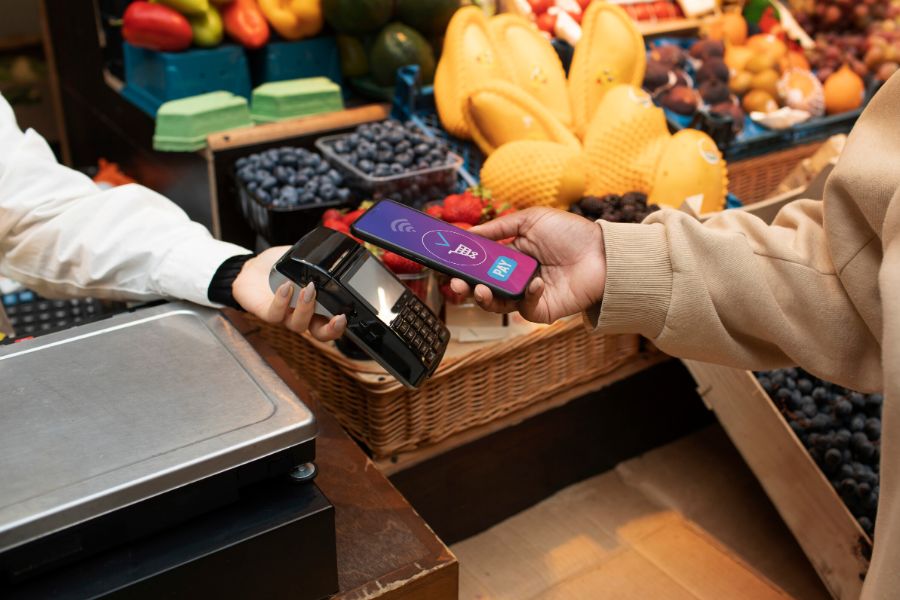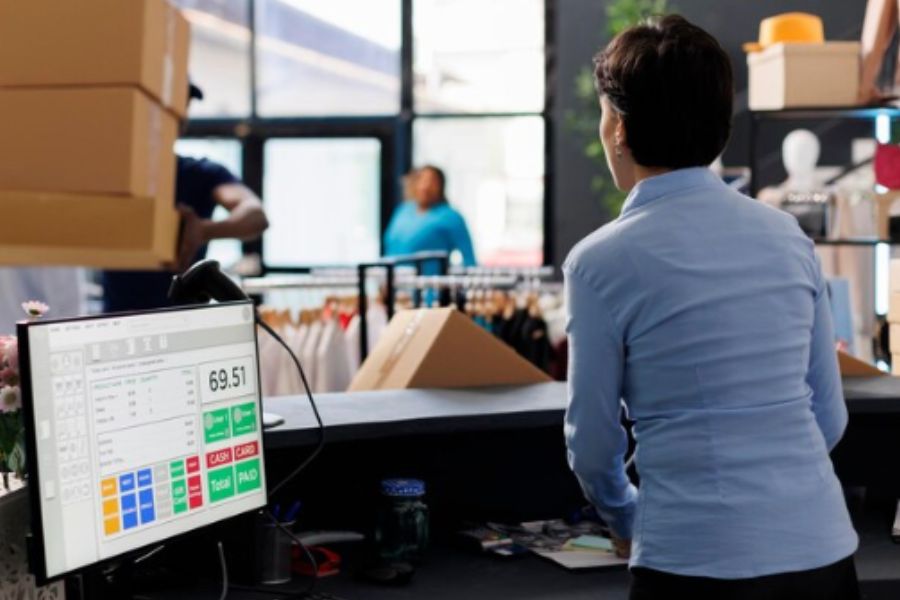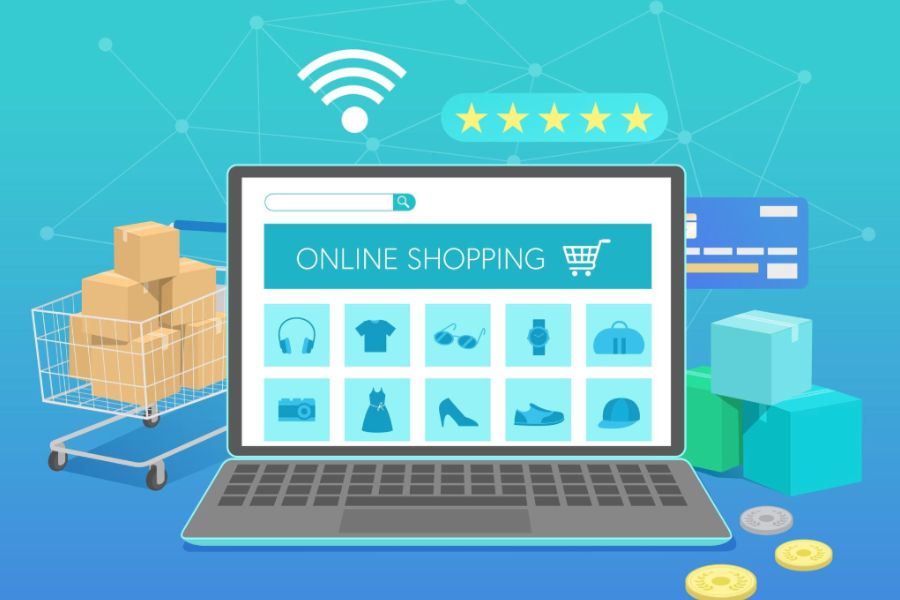If you operate a business system that includes both online and offline or omnichannel business multi-channel sales, you are probably no stranger to POS systems. But do you understand all the different types of POS systems and their pros and cons? If you are wondering about that, do not miss this article.
What is a POS System?
In terms of technology, a POS system is combined with
- POS software is a computer system that undertakes tasks such as inventory tracking, financial transactions, and other data recording for businesses
- POS hardware, which is all the input and output devices that make the point of sale software function at the point of purchase such as barcode scanners, receipt printers, etc
Modern POS systems offer more than just recording and managing transactions.
- Warehouse management across branches, both online and offline
- Provide sales metrics and reports
- Effective customer data management
- Improve in-store sales
With these enormous benefits, POS systems are the perfect solution to bring customers the most satisfying omnichannel experience. All of the above purposes contribute to building customer relationships as well as bringing the best, flexible and wonderful experience to customers when participating in shopping on your store’s omnichannel.
This will save time and costs for businesses. In addition, customers will have a higher appreciation for companies, shops, and restaurants that integrate the use of professional tools.
Different Types of POS Systems
Depending on your business goals, you can choose from numerous POS systems. In this article, we will help you define some of the popular POS systems nowadays and give you a quick overview of the most suitable ones for your business.
On-premise POS Systems
The on-premise POS System is installed on its server technical infrastructure and is managed by the company’s IT staff. The company will then have to buy the software’s license completely to install it on its server.
With On-premise, the software will be installed and deployed directly to the enterprise server. The business will grant database access to each account. The business will then grant access to this database to the accounts. All data will be stored directly without going through any other third party, plus the information security is committed.
However, it requires IT staff with a master’s experience in the technical field and is always available to resolve any problems that exist. Also, it will cost a huge expense for the IT team to handle that system.
Furthermore, because it has only to be paid once when installed into the system, it is difficult and expensive to have any updates.
Terminal/ Desktop POS System
Like an On-Premise POS System, this POS system is commonly found in omnichannel offline businesses, which operate with counters and cashiers for each store. This system will work with a cashier counter and a computer, the cashier will scan the product code and then get paid by the customer. This is a fairly common model for small shops that are just starting up.
A desktop POS system that runs on your computer or laptop, in a browser, desktop app, or on-premises system in a store. You can connect attachments like barcode scanners, credit card readers, and cash drawers so it can function like a typical cash register.
However, this POS system has certain limitations, which can be mentioned as:
- Lack of flexibility: You will have to be present at the point of sale to be able to read sales and expense analysis reports, even closing shifts, assigning shifts to employees, can’t control it all remotely.
- Limited customer support: Because it is likely an On-Premise POS System, this system does not offer software updates or customer support. You can call the company to service your POS system if you have a problem, but there may be additional charges.
Cloud-based POS System
Unlike the On-Premise POS System, Cloud POS System is an internet-based POS software system provided by a third party. It is also referred to as a Software-as-a-Service (SaaS), which customers can access remotely via the Internet after paying a recurring subscription fee.
The big difference between a Cloud-Based POS System and an On-Premise POS System is that it does not require any specific and complicated IT skills to manage and run a system, everything is connected via a cloud database anytime, anywhere with the internet. Nevertheless, the cloud-based POS System is also usually required to pay a subscription fee which normally costs monthly, thereby, there is no existing cost incurred when running.
Also, the pricing for running a Cloud-Based POS System seems a bit higher than running On-Premise POS Systems but overall, it has:
- More support for the third party who has full responsibility to take care of the system
- Manage any devices with an internet connection
- No more additional fee for upgrading or serve maintenance in systems
- No system investment cost
- No need IT skills require
The last part when using a Cloud-Based POS System is the software is run by another third party in the market and the information security must be committed. Therefore, choosing the right provider Cloud-Based POS System is one of the most important steps for the business.
ConnectPOS is the most appropriate choice for security information customers when providing a cloud-based POS system. For generals e-commerce sellers, ConnectPOS has numerous advantages to grow to hack, including:
- Real-time synchronization: Stocks between the store and POS systems will be updated consistently in real-time.
- Click-and-Collect: Customers can finish checkout financial transactions in online systems and pick up stocks in physical stores, and also, refund, exchange, etc give a better and more proactive experience when shopping.
- Multiple Payment Methods: With ConnectPOS, the payment methods accepting varied ways of payment such as debit/credit cards, cash, gift cards, or even reward points, help to make it more convenient for customers to checkout.
You can find more highlight features about ConnectPOS in these platforms below:
- Shopify.
- BigCommerce
- Magento
- WooCommerce
Mobile POS System
A mobile POS system or ‘mPOS’ is when a smartphone, tablet, or other mobile device acts as a point of sale terminal. All you need to do is use your mobile phone, turn on the POS software and start selling.
One of the biggest advantages of mPOS systems is that they are highly portable and they allow you to sell on the spot quickly.
Since these solutions do not take up too much space, mobile POS systems are popular in small retail stores and fast food establishments. And depending on your supplier, your mobile POS system may also offer features like loyalty programs, reporting, inventory management, and more.
Self-Service Kiosk POS System
This is the system that supports the self-payment process for customers. In theory, it works exactly like the Desktop POS System, but the difference is that the customer scans the goods himself and pays without the cashier. The most practical example is that supermarkets like Coles, Woolworths, etc in Australia apply this system.
This system is suitable for large spaces in supermarkets. With this system, the supermarket will save the additional cost of hiring cashiers, in addition, it will also bring an enjoyable shopping experience to customers when almost all customers will not have to wait in line to wait for their turn payment at the cashier.
Wrapping Up: Which is the Most Suitable POS System?
Choose a POS system wisely and be as economical and flexible as possible based on your business purpose. In today’s digital technology boom, a Cloud-Based POS system will be the perfect choice for any online retailer.
With a Cloud-Based POS system like ConnectPOS, you will control and sync everything from merchandise, orders, sales, etc, from your online store to your physical store. In addition, you can be completely accessible from any device with an internet connection to the management system, making it convenient and flexible for business owners.
Don’t miss the opportunity to optimize your revenue from online and offline stores with ConnectPOS.



